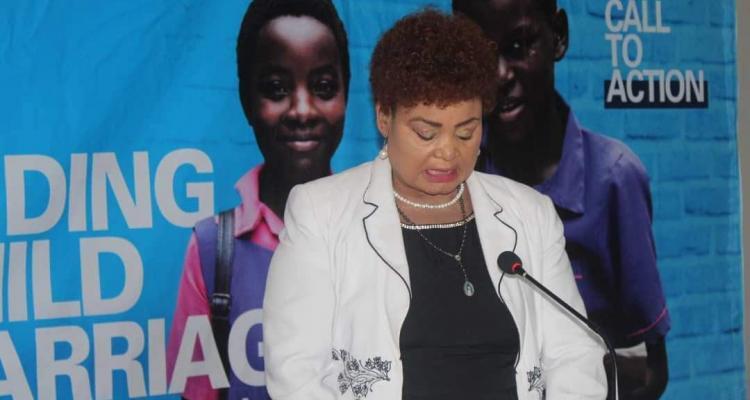
Minister of Gender, Children and Social Welfare Patricia Kaliati has called for more efforts to end child marriages, saying such marriages are evil and are killing the future of this nation.
In her speech during the launch of a Call to Action on Ending Child Marriages in Malawi on Tuesday in Lilongwe, Kaliati said child marriages have far reaching consequences considering that they negatively affect the social, physical and mental well-being of children.
Kaliati added that it is sad to see a 14- year -old is handling all household chores, farming and on top of that bearing a child at that tender age.
“We all know, the risks of that child dying due to pregnancy related complications are very high. Child Marriages are killing the future of this nation. Most girls drop out of school when they enter into marriage at a tender age. As a result, the girls’ future engagement in the economy is shattered and women’s expected earnings in adulthood is reduced by over 15.6% as other studies have demonstrated.
“Most child marriages are happening on our watch. Child marriage is not only a social evil but also a crime and a human rights violation. This is why our laws, namely the Marriage, Divorce and Family Relations Act in section 14 prohibits persons below the age of 18 from entering into a marriage. In addition, the Child Care, Protection and Justice Act in sections 80 and 81 prohibits child marriages as one of the harmful social and cultural practices, forced marriage or betrothal of children. This implies that our law enforcement agencies have a big stake in ensuring that those who perpetuate child marriages are dealt with accordingly,” she said.
She then called upon development partners, donors and faith-based institutions to join forces in ending child marriages and protect the rights of girls.
In his remarks, Country Representative United Children Fund (UNICEF) Rudolf Schwenk said it is important for families and societies at large to change their attitudes on child marriage and to rather extend opportunities for childhood learning and education by keeping girls in school.
He added that there is need for urgency in not only making ending child marriage a key policy priority, but also increasing public investments, specifically by maintaining continuous access to quality education and health services, investing in poverty alleviation and livelihood support programmes, as well as strengthened case management and victim support.
In Malawi, approximately 42 per cent of girls get married before the age of 18 and 9 per cent below the age of 15. The country has one of the highest rates of child marriage in the world.














